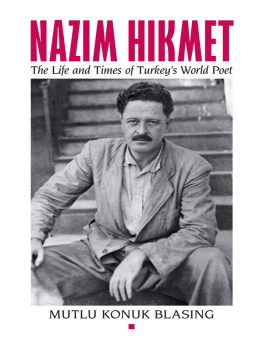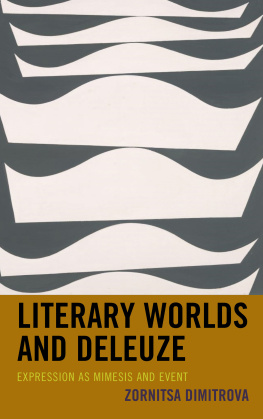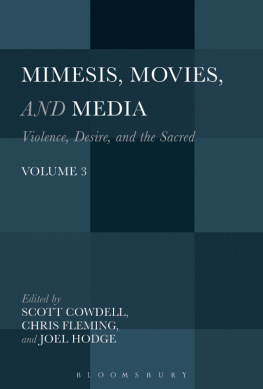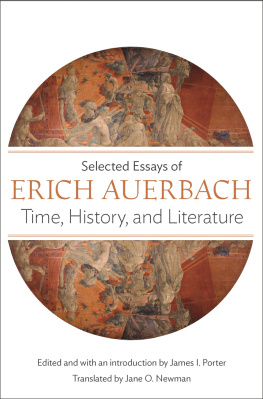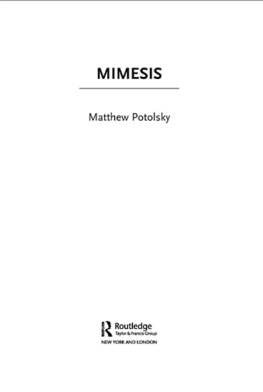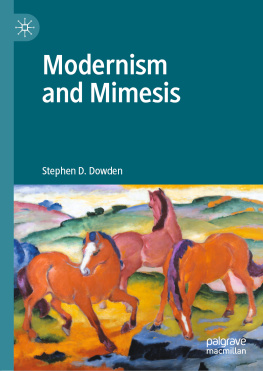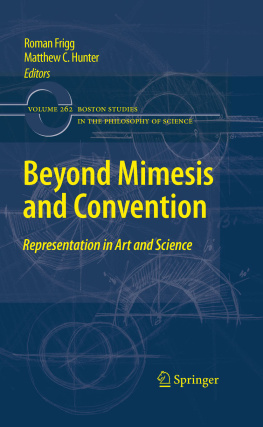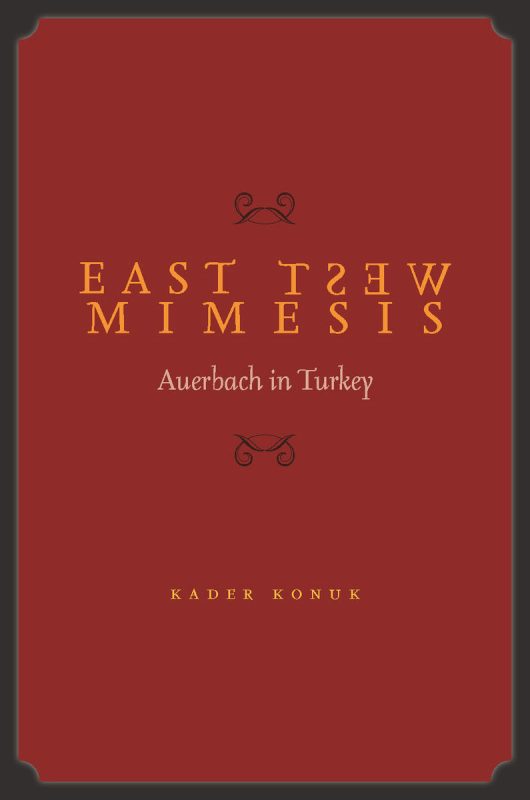East West Mimesis
Auerbach in Turkey
Kader Konuk
Stanford University Press
Stanford, California
Stanford University Press
Stanford, California
2010 by the Board of Trustees of the Leland Stanford Junior University.
All rights reserved.
This book has been published with the assistance of the Office of the Vice President for Research, the College of Literature, Science, and the Arts, the Department of Comparative Literature, and the German Department at the University of Michigan.
Portions of Chapter 4 were originally published in Ethnic Europe: Mobility, Identity, and Conflict in a Globalized World, edited by Roland Hsu, 2010, the Board of Trustees of the Leland Stanford Junior University. Reprinted by permission of Stanford University Press.
No part of this book may be reproduced or transmitted in any form or by any means, electronic or mechanical, including photocopying and recording, or in any information storage or retrieval system without the prior written permission of Stanford University Press.
Printed in the United States of America on acid-free, archival-quality paper
Library of Congress Cataloging-in-Publication Data
Konuk, Kader.
East West mimesis : Auerbach in Turkey / Kader Konuk.
p. cm.
Includes bibliographical references and index.
ISBN 978-0-8047-6974-7 (cloth : alk. paper)
ISBN 978-0-8047-7575-5 (electronic)
1. Auerbach, Erich, 18921957. 2. Literary historiansTurkeyIstanbul. 3. PhilologistsTurkeyIstanbul. 4. Jewish refugeesTurkeyIstanbul. 5. HumanismTurkeyHistory20th century. 6. TurkeyIntellectual life20th century. 7. EuropeIntellectual lifeTurkish influences. 8. TurkeyCivilizationWestern influences. I. Title.
PN75.A9K66 2010
809dc22
[B] 2009048662
For Vanessa and Sefa
Contents
Illustrations
Acknowledgments
I WISH TO EXTEND MY THANKS to the following institutions, which supported my work with generous grants and fellowships: the National Endowment for the Humanities, the Wissenschaftskolleg zu Berlin (Institute for Advanced Study), the Zentrum fr Literatur- und Kulturforschung (Center for Literary and Cultural Research) Berlin, the Deutscher Akademischer Austauschdienst (German Academic Exchange Service), and the Literaturarchiv (Literary Archive) Marbach. In particular, I thank the University of Michigan for ongoing support through the German Department, the Department of Comparative Literature, the Center for Middle Eastern and North African Studies, the Rackham Graduate School for Graduate Studies, the Office of the Vice President for Research, and the College of Literature, Science, and the Arts. I am grateful to successive chairs of the German and Comparative Literature departmentsFred Amrine, Tobin Siebers, Geoff Eley, Helmut Puff, Julia Hell, and Yopie Prinswho have, without fail, supported this project from its inception. This book has benefited from the generous support, advice, and enthusiasm of my colleagues at the University of Michigan, who at various stages have read and critiqued the manuscript. In particular, I thank Vanessa Agnew, Kathryn Babayan, Carol Bardenstein, Kerstin Barndt, Sara Blair, Catherine Brown, Kathleen Canning, Rita Chin, Alina Clej, Fatma Mge Gek, Gottfried Hagen, Michael Kennedy, Vassilios Lambropoulos, Lydia Liu, Tomoko Masuzawa, Christi Merrill, Joshua Miller, Johannes von Moltke, Damani Partridge, David Porter, Jim Porter, Robin Queen, Anton Shammas, Scott Spector, George Steinmetz, Ruth Tsoffar, Silke-Maria Weineck, and Patricia Yaeger.
Archivists in Germany and Turkey acceded to my numerous requests, providing me with access to files, letters, photographs, newspapers, and lectures that helped me tell the story of Turkish exile. Peter Grupp at the Politisches Archiv des Auswrtigen Amts (Political Archive of the Foreign Office) and Christoph Knig at the Literaturarchiv Marbach were immensely helpful. I am also grateful to archivists at the Bundesarchiv (Federal Archive) in Berlin, the newspaper archive of the Staatsbibliothek Berlin, the archive of the Akademie der Wissenschaften (Academy of Sciences) in Berlin, and, in particular, the stanbul niversitesi Arivi (Istanbul University Archive). Without the libraries at the University of Michigan and the Zentrum fr Literatur- und Kulturforschung Berlin this book could not have been written. I owe particular thanks to librarian Beau Case, who was always attentive to my needs and interests, and to Feyza Sayman, who helped me access the precious early Turkish translations of Dantes Commedia. In Berlin, I thank librarians Ruth Hbner, Halina Lemke, and Jana Lubasch for their patience and resourcefulness during the past years.
At Stanford University Press, I owe special thanks to senior editor Norris Pope for his enthusiasm and care during the review process, and to editorial assistant Sarah Crane Newman for the attention she paid in giving the manuscript its final shape. I am grateful to Stanford University Presss two readers, one of them being Nina Berman, whose careful and detailed reading allowed me to improve the historical argument I make in this book. I am also indebted to Katie Trumpener and an anonymous reader for another press. I benefited immensely from the breadth and depth of their knowledge and am grateful for their instructive recommendations on revising the manuscript. Helen Tartar, in particular, stands out as a model of generosity and graciousness.
I have been inspired and encouraged by a wider community of scholars across the disciplines and am gratified by the enthusiasm they showed in the subject of this book. In particular, I thank Leslie Adelson, Sheyla Artemel, Marc Baer, Rfat Bali, Karlheinz Barck, Seyla Benhabib, Nina Berman, Cevat apan, Ouz Cebeci, Silvia Cresti, Ned Curthoys, Gzin Dino, Gisela Ecker, Marty Elsky, Amir Eshel, Herrmann Fuchs, Cathy Gelbin, Saime Gksu, Galit Hasan-Rokem, Roland Hsu, Asl Isz, Djelal Kadir, Georges Khalil, Wolfgang Klein, Erol Krolu, Rita Koryan, Jonathan Lamb, Wolf Lepenies, Harry Liebersohn, Suzanne Marchand, Reinhart Meyer-Kalkus, Aamir Mufti, Angelika Neuwirth, Jane Newman, Esra zyrek, Jeffrey Peck, Helmut Peitsch, Charles Sabatos, Hinrich Seeba, Samah Selim, Helmut Smith, Alexander Stephan, Robert Stockhammer, Eleonora Stoppino, Shaden Tageldin, Franziska Thun, Edward Timms, Maria Todorova, Paolo Tortonese, Martin Treml, Martin Vialon, Daniel Weidner, Sigrid Weigel, and Zafer Yenal.
I owe special thanks to research assistants Sultan Akglolu, Sarah Affenzeller, Adam Brown, Susan Buettner, Joshua Hawkins, Kathryn Sederberg, Shannon Winston, and, above all, Seth Howes and Baak andar, who assisted me with great resourcefulness in collecting and digitizing material in libraries and archives. The Turkish-German Studies Group at the University of Michigan provided a welcome and lively forum for discussing ideas related to this book. Students in my graduate seminars on Auerbach and on Postcolonial Studies asked probing questions that helped me better formulate some of my ideas; my undergraduate courses on German Ethnicities and Modernism likewise provided a helpful contextI thank all the students, and, in particular, doctoral candidates Nick Block, Efrat Bloom, Gen Creedon, Adile Esen, Ela Gezen, Spencer Hawkins, Solveig Heinz, Amr Kamal, Michael Rinaldo, Corine Tachtiris, Patrick Tonks, Simon Walsh, and Orian Zakai for their stimulating engagement with issues of exile, migration, and transnationalism.
Translations from Turkish into English are mine; translations from German into English are generally Vanessa Agnews. I am especially thankful to Victoria Holbrook, who carefully translated two of Auerbachs lectures (see appendix) that hitherto have been available only in Turkish. I am, beyond words, indebted to Vanessa Agnew, who edited my work numerous times. Without her care, patience, and eloquence this book would not be what it is now. I also owe thanks to editors Mary Hashman, Ellen Lohman, Ellen McCarthy, Carol Sickman-Garner, and Louise Goldberg for working on the manuscript. John Donohue at Westchester Book Services coordinated the copyediting. Staff members at the University of Michigan, the Wissenschaftskolleg zu Berlin, the Zentrum fr Literatur- und Kulturforschung, and the National Endowment for the Humanities assisted me in numerous ways. Cynthia Avery, Marya Ayyash, Christine Hofmann, Wolfgang Kreher, Jutta Mller, Sonia Schmerl, Jim Turner, Peggy Westrick, and, above all, Sheri Sytsema-Geiger dealt patiently and resourcefully with funding questions, visas, and the logistics of transnational scholarship.


